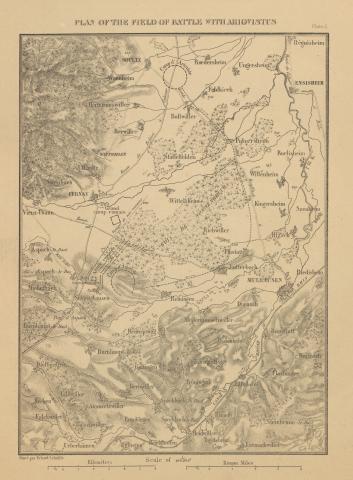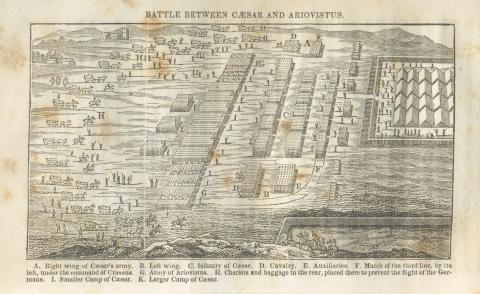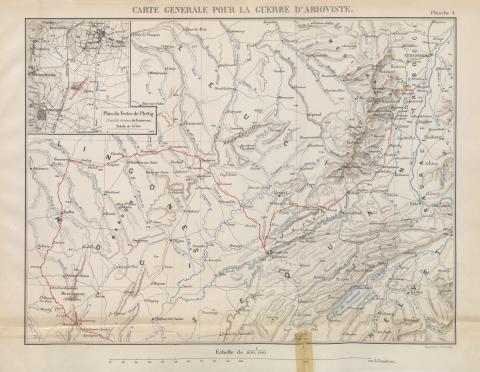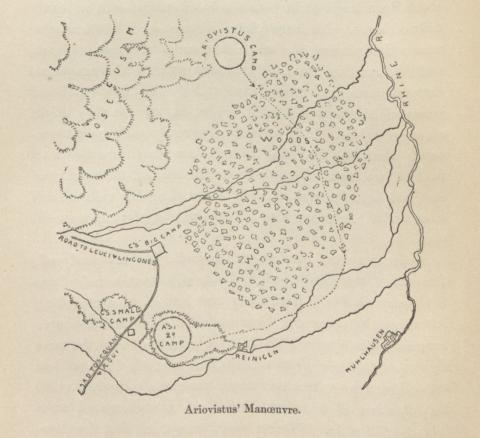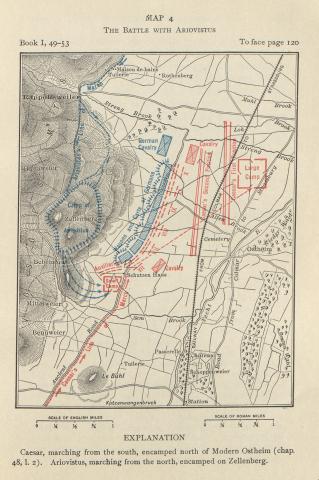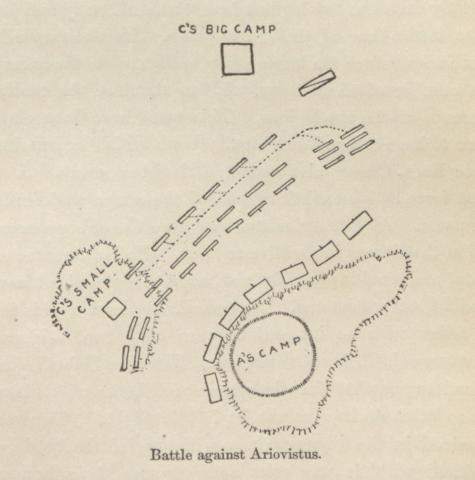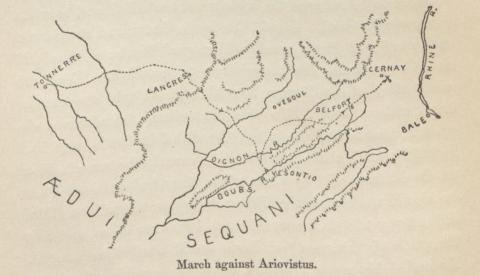postrīdiē : adv., on the next day, the day after.
ālārius, -a, -um : belonging to the wing; as subst., m. pl., auxiliary troops, auxiliaries, so called because their proper station in battle was on the wings of the army.
cōnspectus, -ūs m.: sight, appearance; presence.
quod : conj., that, in that, because, since; as to the fact that: the fact that.
legiōnārius, -a, -um : belonging to a legion, legionary.
triplex, -plicis : adj., threefold, triple; triplex aciēs, see Introd., p. 44.
īnstruō, -struere, -strūxī, -strūctus : build in; set up, prepare; marshal, draw up; fit out, equip, rig.
dēmum : adv., at last, at length.
necessāriō : adv., inevitably, from necessity, necessarily.
Germānus, -ī, m. : a German; pl., the Germans; as adj., Germānus, -a, -um, German
generātim : adv., by kinds, by tribes.
intervāllum, -ī n.: space between palisades; space, distance, interval.
Harūdēs, -um, m.: pl., the Harudes, a German tribe, originally perhaps living in Jutland.
Marcomannī, -ōrum, m.: pl., the Marcomanni, a tribe of Germans.
Tribocī, -ōrum, m.: pl., the Triboci, a German tribe, perhaps dwelling on both sides of the Rhine.
Vangionēs, -um, m.: pl., the Vangiones, a German tribe.
Nemetēs, -um, m.: pl., the Nemetes, a tribe of Germans, living probably on the left bank of the Rhine.
Sedusiī, -ōrum, m.: pl., the Sedusii, a German tribe.
Suēbī -ōrum m.: the Suebi. The Suebi lived in Germany, but the exact locality is uncertain. Some think that several different German tribes were included under the name
raeda, -ae, f. : wagon, four-wheeled, sometimes covered; traveling-carriage
carrus, -ī, m.: cart, wagon.
circumdō, -dare, -dedī, -datus : put around; surround, encompass.
quī, quae or qua, quod: indef. adj., used chiefly after sī, nisi, nē, num, any, some; the form quī is sometimes used as a substantive, any one, some one.
pandō, pandere, pandī, passus: spread out, extend; passus capillus, disheveled hair.
implōrō, -āre, -āvī, -ātus : beg, entreat.
servitūs, -ūtis f.: servitude, slavery, subjection.

